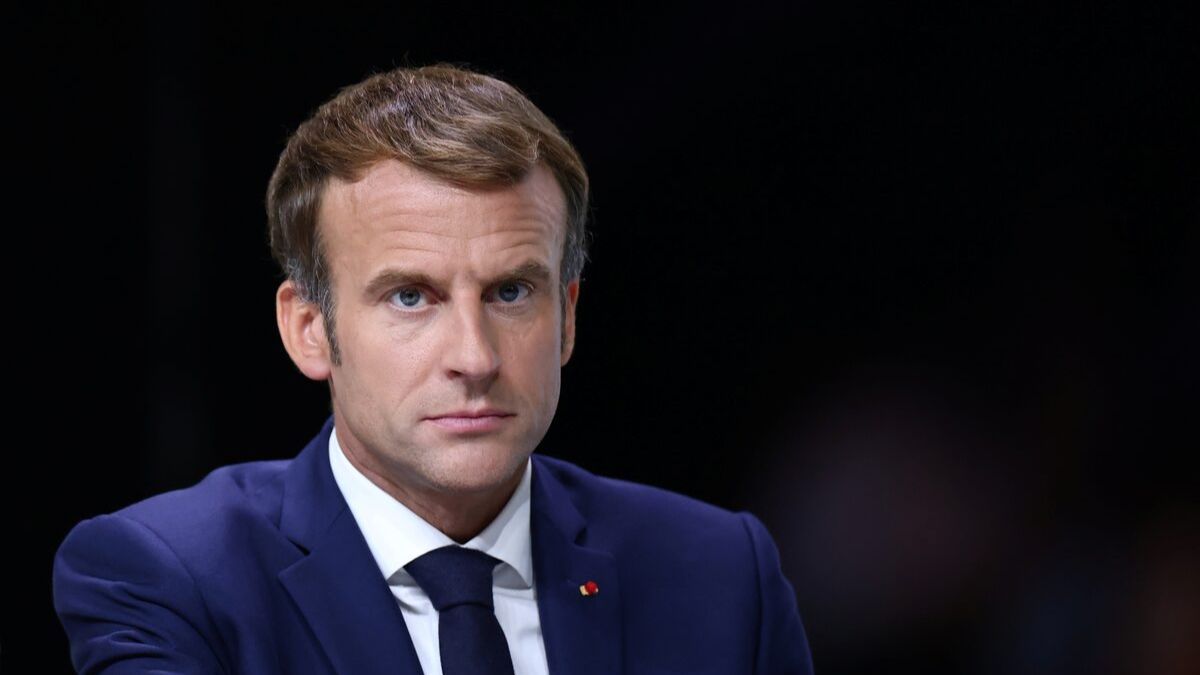A measly three days ahead of the first round of the snap elections in France, the country’s President, Emmanuel Macron, has some bold statements. Macron warned on Monday that a win for either the far left or the far right could spark “civil war.”
Macron targeted the far-right National Rally party led by Marine Le Pen, and the far-left France Unbowed party.
But why does the French president see the possibility of a civil war? And can his words be taken at face-value, given his vested interests in the upcoming elections? We explain.
Potential for civil war
Macron has argued that the policies of both extremes exacerbate social divisions, which could escalate into civil conflict.
The far-right Marine Le Pen-led National Rally’s emphasis on national identity and stringent immigration controls can alienate and marginalise immigrant communities, fostering resentment and social tension.
On the other hand, the far-left France Unbowed’s focus on economic redistribution and minority rights can be seen as threatening by those who feel left out of these policies, particularly the middle and upper classes, who could feel that these policies harm their wealth.
Indeed, there is some truth to what Macron has said about the policy stands that these extremist parties have taken. Here’s a look at that.
Divisive policies of the far-right
The National Rally party is known to be anti-immigration and anti-Islam.
The party advocates for a substantial reduction in immigration and tighter border controls. They have even argued in favour of prioritising French nationals in employment and social services. Marine Le Pen herself has called for the abolition of birthright citizenship and stricter policies to combat illegal immigration. Deporting foreigners who have been convicted of crimes is also on their agenda.
Impact Shorts
More ShortsThe French society is quite diverse. However, the National Rally has been adamant on having immigrants assimilate into French culture. On the surface, this policy is about adopting French values and norms. However, in practice, this often translates into policies that restrict the visibility of non-Christian religious symbols and practices in public. The obsession with banning the hijab and other Islamophobic rhetoric stems from this mindset.
Notably, the National Rally also promotes a brand of nationalism that can be exclusionary to non-native French populations.
In an interview with the podcast, “Generation Do It Yourself”, Macron said, “I think that the solutions given by the far right are out of the question, because it is categorising people in terms of their religion or origins and that is why it leads to division and to civil war.”
Exclusionary politics of the Left
Firebrand leader Jean-Luc Mélenchon’s France Unbowed champions policies aimed at reducing economic inequality through higher taxes on the wealthy, increased social spending, and stronger labour rights. The party supports extensive public services and welfare programs.
It is also firmly against austerity measures and advocates for substantial public investment in housing, education, and healthcare to address socio-economic disparities.
France Unbowed supports policies that promote the rights and inclusion of ethnic and religious minorities. They have opposed policies that they see as discriminatory, such as bans on religious symbols in public institutions. The party has been critical of Israel’s war in Gaza- a move that has endeared them to some Muslim voters.
Referring to accusations that the far-left party aligns itself to certain issues to appease minority voters, Macron said that they promote a kind of cummunitarianism that could also lead to civil war.
Taking Macron’s statements with a pinch of salt
Macron’s statements about the potential for civil war should be viewed with some skepticism, given his vested interest in maintaining his centrist position.
Macron’s warnings can be seen as part of his electoral strategy to galvanise support for his centrist coalition by highlighting the dangers of extreme policies, according to Politico. By framing the election as a choice between stability (his administration) and chaos (his opponents), he aims to consolidate moderate voters who may be disillusioned with his government but wary of the extremes.
“When you are fed up, and daily life is hard, you can be tempted to vote for the extremes that have quicker solutions. But the solution will never be to reject others,” he said in a thinly-veiled pitch for voters to select his own party.
Both the far-right and far-left have accused Macron of fearmongering. Marine Le Pen’s National Rally and Jean-Luc Mélenchon’s France France Unbowed have argued that Macron’s policies have failed to address the root causes of social discontent, such as economic inequality and social justice issues, thereby exacerbating divisions.
With inputs from agencies


)

)
)
)
)
)
)
)
)



